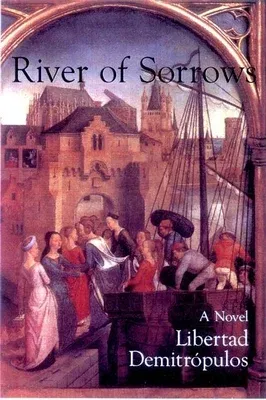Libertad Demitropulos
(Author)River of SorrowsPaperback, 1 October 2000

Qty
1
Turbo
Ships in 2 - 3 days
In Stock
Free Delivery
Cash on Delivery
15 Days
Free Returns
Secure Checkout

Part of Series
Secret Weavers
Print Length
147 pages
Language
English
Publisher
White Pine Press (NY)
Date Published
1 Oct 2000
ISBN-10
1877727881
ISBN-13
9781877727887
Description
Product Details
Author:
Book Format:
Paperback
Country of Origin:
US
Date Published:
1 October 2000
Dimensions:
22.89 x
15.32 x
0.91 cm
ISBN-10:
1877727881
ISBN-13:
9781877727887
Language:
English
Pages:
147
Publisher:
Series:
Weight:
222.26 gm